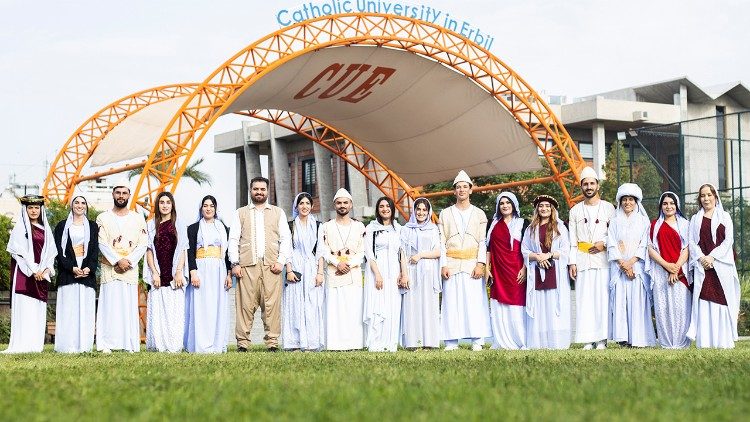In 2014, so-called Islamic State swept across northern Iraq, capturing vast swathes of territory.
The invasion led to mass displacement, particularly of minority groups such as Christians, Yazidis, Turkmen and Shabak.
Many of these refugees fled to the Kurdish region of northeast Iraq, where – says Fr Karam Shahmasha, a priest of the local Chaldean Catholic Archdiocese – the local Church sought to provide them with housing, food, and medical care.
The founding of the university
In time, Fr Shahmasha tells Vatican News, these charitable initiatives gave rise to an even bigger project: the founding of the Catholic University in Erbil, or CUE, which aimed to be a “beacon of light in the midst of chaos”.
The goal was to welcome students of all backgrounds, particularly to those who had suffered the most from recent violence.
In a talk at Boston College in 2023, Archbishop Bashar Warda, CUE’s Chancellor and Chairman of the Board of Trustees, stressed that “We opened the doors of CUE to those most affected by ISIS: the forcibly displaced, the Christians, and the Yazidis … We are committed to being a strong voice for the hurt.”
Celebrating Yazidi culture
Fr Shahmasha emphasises the support that CUE offers to students from the Yazidi community, which suffered a brutal genocide at the hands of ISIS, surpassing even the ruthless treatment meted out to the region’s Christians.
Thanks to a number of generous benefactors, both Catholic and non-Catholic, CUE is able to hand out numerous scholarships every year for Yazidi students, Fr Shahmasha says. It also regularly organises events celebrating Yazidi culture, such as the annual celebration of the Yazidi New Year, and collaborates with organisations fighting for Yazidi rights.
Additionally, with the help of the Pontificial foundation Aid to the Church in Need, CUE is able to award a large number of ‘Pope Francis Scholarships’ every year, intended mainly for Christian students.
By Joseph Tulloch / vaticannews






